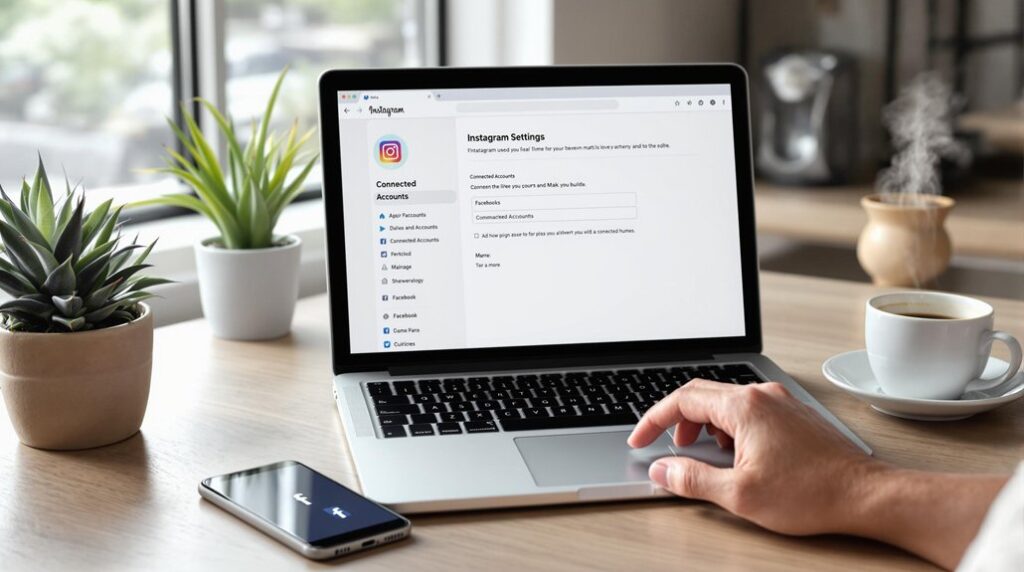Handling negative comments on Facebook effectively preserves your brand's reputation and customer trust. Respond promptly, ideally within an hour, to show you value your community. Be professional and polite, avoiding any defensive language. Invite the commenter to take the conversation private, where you can address their concerns more effectively. Utilize Facebook's moderation tools to filter, hide, or delete harmful content strategically. Learn from the feedback to identify recurring issues and improve your service. By mastering these approaches, you'll manage negative comments efficiently and turn them into opportunities for growth. Here's how to take your online responses to the next level.
Key Takeaways
- Respond promptly to negative comments to showcase commitment to customer service and mitigate potential fallout.
- Stay professional and polite by acknowledging concerns with courteous language and avoiding defensive responses.
- Take the conversation private to manage complaints effectively and offer personalized solutions while maintaining confidentiality.
- Utilize moderation tools to filter, hide, or delete inappropriate content, ensuring a professional image.
- Learn and improve by analyzing negative feedback to identify recurring issues and implement changes for enhanced customer satisfaction.
Respond Promptly
Responding promptly to negative comments on Facebook shows your followers that you genuinely care about their feedback. Quick action is crucial in maintaining strong customer engagement and safeguarding your brand reputation. Research indicates that addressing comments within one hour can greatly enhance customer satisfaction and loyalty. This immediate response not only mitigates potential fallout but also demonstrates that your brand values its online community.
When you manage your social media effectively, you prevent negative comments from escalating into more significant issues. Timely responses showcase your commitment to customer service and professionalism. By engaging swiftly, you can transform a potentially damaging situation into a positive interaction, reinforcing trust and credibility with your audience.
To streamline your social media management, consider setting up notifications for comments and messages. This ensures you stay informed and can react quickly. Additionally, allocate specific team members to monitor and respond to feedback, ensuring no comment is overlooked.
Stay Professional and Polite
While timely responses are essential, it's equally important to stay professional and polite when addressing negative comments on Facebook. Demonstrating a professional demeanor can greatly impact how others perceive your brand. By maintaining respect, you show that you value all feedback, even when it's not positive.
Start by acknowledging the commenter's concerns. Use courteous language to show that you take their feedback seriously. For example, phrases like 'Thank you for your feedback' or 'We're sorry to hear about your experience' can set a respectful tone. This helps diffuse potential conflicts and shows your commitment to customer service.
Avoid using defensive or confrontational language. It's essential to remain calm and composed, no matter how unfair or harsh the comment may seem. A professional demeanor can prevent further escalation and demonstrate your brand's maturity and reliability.
Additionally, be concise in your responses. Long-winded explanations can come off as excuses. Instead, offer a brief apology or a solution, showing that you're proactive about resolving the issue. By maintaining respect and politeness, you foster a positive interaction, even in the face of negativity.
Take the Conversation Private
Taking negative interactions to private messages can help you manage complaints more effectively and protect your brand's reputation. When you respond to a negative comment, invite the user to continue the conversation through direct messages. This approach allows you to maintain confidentiality and prevent further public escalation.
By moving the discussion to a private setting, you can build rapport with the individual and offer personalized solutions to their complaint. A private conversation shows that you're committed to resolving the issue and taking their concerns seriously. This can help you gain trust from the dissatisfied customer while keeping the details away from the public eye.
In private messages, you can address the customer's specific needs more thoroughly. You have the opportunity to ask detailed questions and explore their concerns in depth, which isn't always feasible in public comments. This helps you offer solutions tailored to their situation, further demonstrating your dedication to customer satisfaction.
Use Moderation Tools
Utilizing Facebook's moderation tools can greatly enhance your ability to manage negative comments effectively. With these tools, you can filter comments, manage visibility, and take decisive actions to maintain a positive online presence. Facebook provides several options to handle different types of negative comments, including hiding, deleting, or replying as needed.
To filter comments, use Facebook's built-in settings to automatically hide comments containing specific keywords. This preemptive measure helps you control the visibility of potentially harmful content before it becomes an issue. Additionally, you can manually hide individual comments that may not fit the criteria but still contribute to a negative atmosphere.
Here's a quick look at what you can do:
| Action | Purpose | How to Implement |
|---|---|---|
| Filter Comments | Prevent harmful comments | Use keyword filters in settings |
| Hide Comments | Manage visibility of specific posts | Click 'Hide' on undesirable posts |
| Delete Comments | Remove inappropriate content | Click 'Delete' on offending posts |
Managing visibility is key to maintaining a professional image. By strategically hiding or deleting negative comments, you can guarantee your audience sees only constructive and relevant discussions. Don't hesitate to use these tools to keep your Facebook page a welcoming and positive space.
Learn and Improve
Negative comments on Facebook are a goldmine for learning and improving your business. These comments offer a unique opportunity to engage in feedback analysis, allowing you to pinpoint areas where your products or services might be falling short. By leveraging these insights, you can make strategic decisions that enhance customer satisfaction and loyalty.
Here's how you can effectively use negative comments for improvement:
- Conduct Feedback Analysis: Scrutinize negative comments to identify recurring themes or issues. This will help you understand what needs immediate attention and improvement.
- Gather Customer Insights: Negative feedback often reveals customer preferences and expectations. Use this information to tailor your offerings more closely to what your customers want.
- Implement Changes: Take actionable steps based on the insights you've gathered. Whether it's improving a product feature or enhancing customer service, show your audience that you're listening and adapting.
- Monitor and Adapt: Continuously monitor feedback to see if the changes you've implemented are resonating with your audience. Adjust your strategies as needed to guarantee ongoing improvement.
Frequently Asked Questions
How to Deal With Negative Facebook Comments?
To deal with negative Facebook comments, reply professionally using templates, hide rather than delete comments to avoid backlash, address issues privately, and ignore trolls. Avoid emotional responses to maintain your professional image.
How to Respond to Insulting Comments on Facebook?
When responding to insulting comments on Facebook, maintain composure and practice empathy. Acknowledge their feedback professionally, use a standard reply template, and consider hiding or deleting comments to prevent escalation and keep the environment positive.
How Do I Deal With Hate Comments on Facebook?
Address hate comments promptly to protect your mental health and online reputation. Hide, delete, or respond privately to maintain control. Use Facebook's moderation tools, and consider professional help for persistent issues.
How to Respond to Nasty Comments?
Respond to nasty comments with engaging responses that encourage constructive dialogue. Address the issue professionally and use a standard reply template. Show you take complaints seriously by acknowledging them promptly and using Facebook's tools to manage negativity.
How Do You Deal With Negative Comments About You?
When dealing with negative comments about you, use self-reflection techniques to understand their impact. Build emotional resilience by focusing on constructive feedback, and approach the situation calmly and professionally to maintain your integrity and credibility.
Conclusion
In handling negative comments on Facebook, respond promptly while staying professional and polite.
Move sensitive discussions to private messages when necessary.
Utilize moderation tools to manage inappropriate content effectively.
Each interaction is a chance to learn and improve your approach.
By maintaining a respectful and proactive stance, you'll not only address concerns but also build a stronger, more positive online community.




